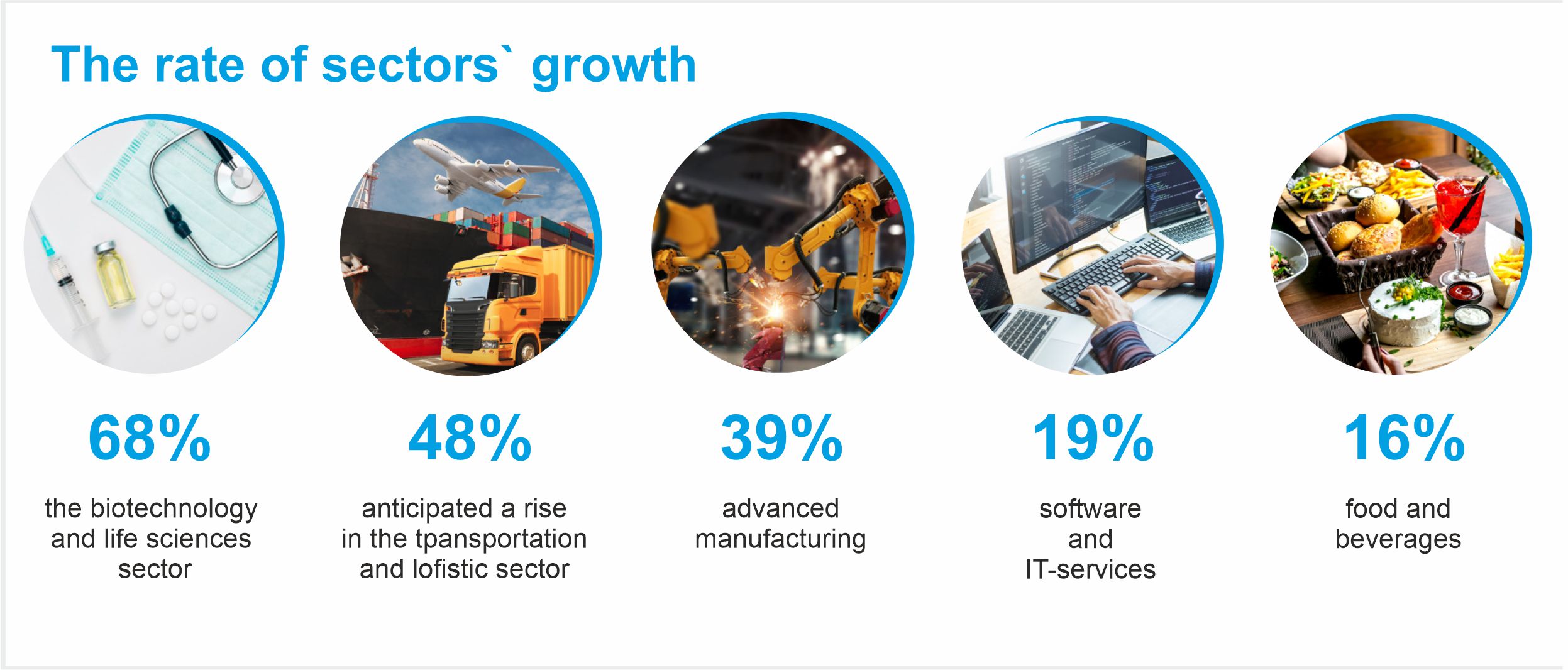The weekly agendа_22.05.2020
The weekly agenda_22.05.2020
The recovering of the economy sectors is influenced by the nature of the changes that Covid-19 has accelerated. Thus, the world’s transition to a digital economy is searching a new way of doing business to meet social progress and better standards of life. That cause new trends.
The Startup Genome, Silicon Valley-based research project, has found that technology startups and their ecosystem have become more critical and the jobs they create more sustainable, because they are better adapted to our economic future. The ‘cost per job’ estimates 41% lower for startups than for SMEs, respectively costs $14,766 and $24,928 annually. Governments are interested in providing a bailout for ailing startups, which can generate the longer-lasting returns. So, the jobs creating for local communities is at the forefront, more important than the support for larger companies and small and medium enterprises (SMEs).
According to a recent Crunchbase survey, 1070 startups from 50 countries were funding by governments, the average return on investments is 13% in the short term. Being a jobs multiplier, startups attract investments from venture capital more extensively than other small businesses. Venture capital has funded 7,600 projects with the total worth of $63.8 bn in the first quarter of 2020.
The manufacturing segments are amongst the worst affected sectors. The automotive & transport equipment, textiles, apparel, tourism and hospitality, food courts industries are appeared to be the most suffered by the lockdown. At the same time the e-commerce, digital technologies, cybersecurity, healthcare and biotechnology, and renewable energies emerge opportunities for growth within the current global environment. The forecasted growth is expected in sectors of new economic reality such as Life sciences, logistics, advanced manufacturing, etc.

Although the renewable energy sector has been declared as reasonably reliable, according to FDI figures from the greenfield investment monitor ($92.1 bn in 2019), there are signs that the situation has changed. Bloomberg NEF forecasted the decline for the solar and battery markets investments in 2020, which will be faced the first fall in since the 1980s. Similarly, Norway’s Rystad Energy recently suggested, the global expansion of wind and solar power plants could be wiped out for a coming year, affected by government restrictions on movement, and foreign exchange markets instability throughout the world. On the top of this, the world’s largest energy oil companies, being the largest investors in green energy, are losing the billions of dollars and exhausted by the oil collapse, even more of their spending will likely be directed towards the protection of existing oil and gas fields rather than to renewables. Whether countries and companies will consider the long-term health of the environment is still uncertain.
There is a significant shift in politics and culture. The political agenda is related to the changing of the digital media environment. The ability of cities to communicate clearly and effectively with their people both online and offline effects on countries’ digital visibility, that leads to distinguished economic performance. The creating of a favorable environment for innovation, the strengthen of the economic competitiveness and the investment attracting are utmost important for the country’s prospects. It has been recognized by the policymakers, which are focused on resolution notes to approve a legal framework for experimentation in a cross-sector manner. It is necessity to derive all the opportunities, which are brought by new technologies –from artificial intelligence to blockchain, 3D printing, virtual reality, robotics and the Internet of Things. Thus, public administration is engaged in the construction of a digital society and outlined a set of 12 strategic measures. The program includes a digitization program for schools, an e-residency program, digital innovation hubs for entrepreneurship, cloud strategy for the public administration, the promotion of technological free zones as the main direction.

As part of both the assistance and advocacy services, Moglino SEZ works even more closely with government agencies and stakeholders, establishes responsible task forces, and actively participates in committees discussing the issues and deliberating on feasible measures to alleviate the impact on private investment.
We took participation in videoconferences: "Rethinking the supply chain: the CIS – an alternative source? " AIP Russia; "Why should European companies invest in Russia?"; "Support Measures for International Investors"; "New 5G infrastructure and Datacenters".
We engaged in operations of aligning issues behind the pandemic consequences, contributed to moving on our next investment stage. Next week we will share our annual report. Be positive, follow by Moglino SEZ news.
